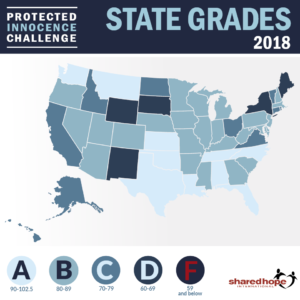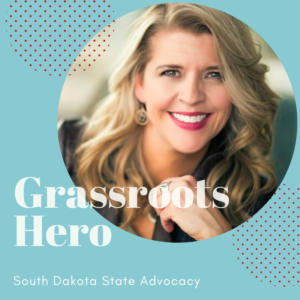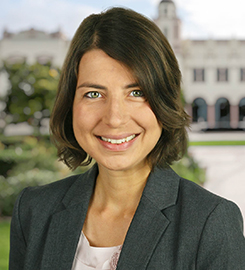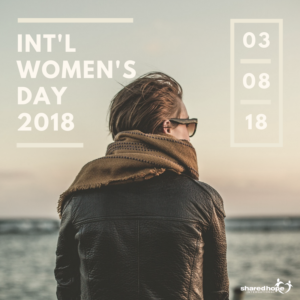PRESS RELEASE
 On the heels of a divisive mid-term election, a new report released today by Shared Hope International reveals an encouraging bi-partisan trend: individuals are coming together to fight child sex trafficking. Shared Hope’s annual Protected Innocence Challenge State Grades analyzes state laws to protect juvenile sex trafficking survivors and hold buyers and traffickers accountable. Through 8 years of empowering grassroots action, Shared Hope is leading a movement and has changed the map from 26 states with F grades in 2011, to 35 states with A and B grades in 2018. Across the nation, Shared Hope’s advocacy tools provide a bridge for anyone to reach out to their elected officials and effect change.
On the heels of a divisive mid-term election, a new report released today by Shared Hope International reveals an encouraging bi-partisan trend: individuals are coming together to fight child sex trafficking. Shared Hope’s annual Protected Innocence Challenge State Grades analyzes state laws to protect juvenile sex trafficking survivors and hold buyers and traffickers accountable. Through 8 years of empowering grassroots action, Shared Hope is leading a movement and has changed the map from 26 states with F grades in 2011, to 35 states with A and B grades in 2018. Across the nation, Shared Hope’s advocacy tools provide a bridge for anyone to reach out to their elected officials and effect change.
Nonprofit Partnership in South Dakota Leads to Groundbreaking Law
In 2017, South Dakota passed a groundbreaking law to ensure survivors of sex trafficking, ages 15 and under, are protected from criminalization. This effort began two years ago when Becky Rassmussen, Executive Director of Call to Freedom, an awareness-raising and survivor-serving organization, recognized the important perspective she could bring to the legislative process. Seeking to address South Dakota’s D grade, Becky reached out to Shared Hope for technical assistance, and together with local partners, three critical pieces of legislation were passed strengthening the state’s response to child sex trafficking.
“Shared Hope is a valuable asset to what we are doing here in South Dakota,” said Becky Rassmuseen. “We are extremely grateful for their ability to create awareness and help us in our research of what other States have done successfully and how we can make our legislation more effective.”
State Grades Empower Lawyer and Law Enforcement Officer to Change Tennessee Law
Towards the east in Tennessee, another passionate individual became aware of the scourge of child sex trafficking in his state and committed to fight it through the rule of law. Ryan Dalton, a Tennessee attorney, who was already working to combat humanitarian violations in Sudan as a law student, learned about Shared Hope’s state report cards from a friend. Having seen firsthand through his advocacy work how state laws could both help and harm survivors, he started studying how to address the gaps in Tennessee’s laws. Ryan’s desire to improve Tennessee’s laws eventually led him to connect with Margie Quin, who at the time was Special Agent in Charge at the Tennessee Bureau of Investigation (TBI). Leaning on Shared Hope’s analysis of Tennessee’s laws, Ryan, Margie, and a coalition of lawmakers and advocates succeeded in strengthening Tennessee’s laws over the next 8 years.
“Tennessee benefited from a bi-partisan activist General Assembly and a combination of state and nonprofit leaders to craft a comprehensive strategy,” said Margie Quinn. “Shared Hope’s Protected Innocence Challenge framework provided the roadmap, all we had to do is find the will to effect change.”
Today Tennessee has an A grade and the highest score in the nation. But that hasn’t stopped these committed Tennesseans from working to improve their state’s laws.
“When Margie and I first began to advance new laws to fight human trafficking, Tennessee was a safe place for traffickers and buyers, yet a dangerous place for victims,” remembered Ryan Dalton. “Today, thanks to a hard-working coalition of devoted advocates and Shared Hope’s Protected Innocence Challenge, our state is a dangerous place for traffickers and buyers, and a safe place for victims. Though we have come far, our effort to build a slave-free Tennessee remains unrelenting.”
New Jersey Community Activist Reaches out to Lawmaker
Back in 2012, Karen Fenkhart, active community member and New Jersey resident, was holding a presentation on preventing sex trafficking. She reached out to her local Assemblyman Ron Dancer to attend. While he was not able to make it, he was curious to learn more. Karen, a volunteer with Shared Hope, contacted the policy team and connected them to Dancer. That connection lead to a multi-year effort by Asm. Dancer sponsoring and co-sponsoring critical pieces of legislation related to child sex trafficking. Because of Karen’s outreach to her elected official, Asm. Danser remains a steadfast champion for juvenile sex trafficking survivors.
In a divided time, Becky, Karen, Ryan and Margie are heroes of grassroots activism, and the tools of the Protected Innocence Challenge State Grades lay the framework for all people to work together and spark change in their state.
“2019 is our opportunity to send a message that we as a nation stand together with survivors of child sex trafficking,” encouraged Linda Smith, Shared Hope International Founder and President. “There’s still work to do, and while many issues are dividing us, this problem is bringing both sides of the aisle together. We must continue to take action in every state and work together to protect children.”
Shared Hope International’s advocacy tools, from tweeting your legislator to in-depth legal analysis, empower individuals from all backgrounds to join the anti-trafficking movement and fight to end child sex trafficking.
The official release presentation of this year’s grades will take place at the National Foundation of Women Legislators Annual Conference via Facebook Livestream on Friday, November 16 at 12:45 ET.
 In 2017, South Dakota passed a groundbreaking law to ensure survivors of sex trafficking, ages 16 and under, are protected from criminalization. This effort began two years ago when Becky Rassmussen, Executive Director of Call to Freedom, an awareness-raising and survivor-serving organization, recognized the important perspective she could bring to the legislative process. Seeking to address South Dakota’s D grade, Becky reached out to Shared Hope for technical assistance, and together with local partners, three critical pieces of legislation were passed strengthening the state’s response to child sex trafficking.
In 2017, South Dakota passed a groundbreaking law to ensure survivors of sex trafficking, ages 16 and under, are protected from criminalization. This effort began two years ago when Becky Rassmussen, Executive Director of Call to Freedom, an awareness-raising and survivor-serving organization, recognized the important perspective she could bring to the legislative process. Seeking to address South Dakota’s D grade, Becky reached out to Shared Hope for technical assistance, and together with local partners, three critical pieces of legislation were passed strengthening the state’s response to child sex trafficking. I am grateful and humbled for the learning opportunity Shared Hope provided me this summer. It would not be an exaggeration to say that it has been truly impactful experience. Shared Hope has a 20-year history in the anti-trafficking field and its enduring presence makes it a leader in the field.
I am grateful and humbled for the learning opportunity Shared Hope provided me this summer. It would not be an exaggeration to say that it has been truly impactful experience. Shared Hope has a 20-year history in the anti-trafficking field and its enduring presence makes it a leader in the field. No doubt this year’s national discussion will involve the courageous movement of women standing up and speaking out against sexual assault. In today’s #MeToo culture, women are breaking the silence of injustice and making clear that their bodies are their own. We can all agree that it’s past time that abusers are held accountable for their actions and face consequences, but even with this powerful movement underway, we’re leaving behind a tremendous population of women. When we talk about breaking the silence about abuse, we’re still ignoring the issue of sex trafficking.
No doubt this year’s national discussion will involve the courageous movement of women standing up and speaking out against sexual assault. In today’s #MeToo culture, women are breaking the silence of injustice and making clear that their bodies are their own. We can all agree that it’s past time that abusers are held accountable for their actions and face consequences, but even with this powerful movement underway, we’re leaving behind a tremendous population of women. When we talk about breaking the silence about abuse, we’re still ignoring the issue of sex trafficking.





